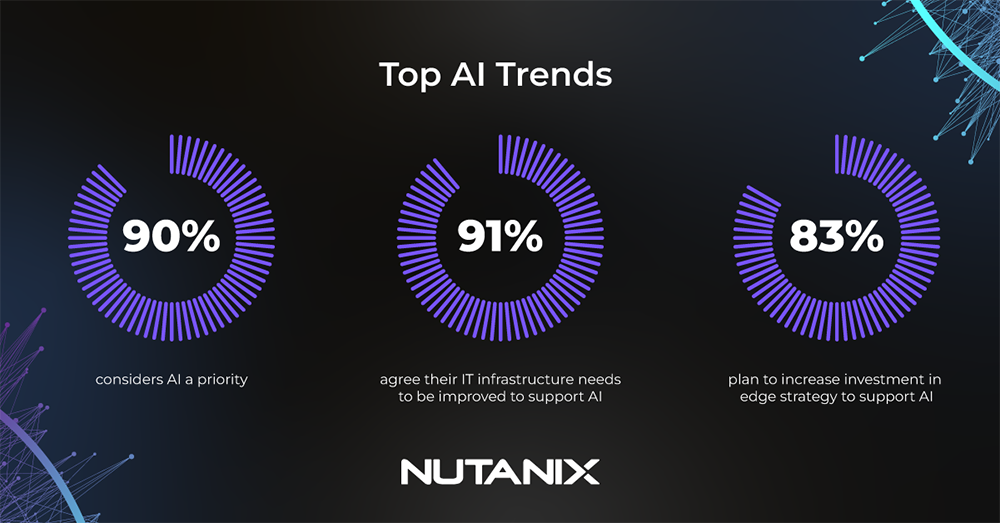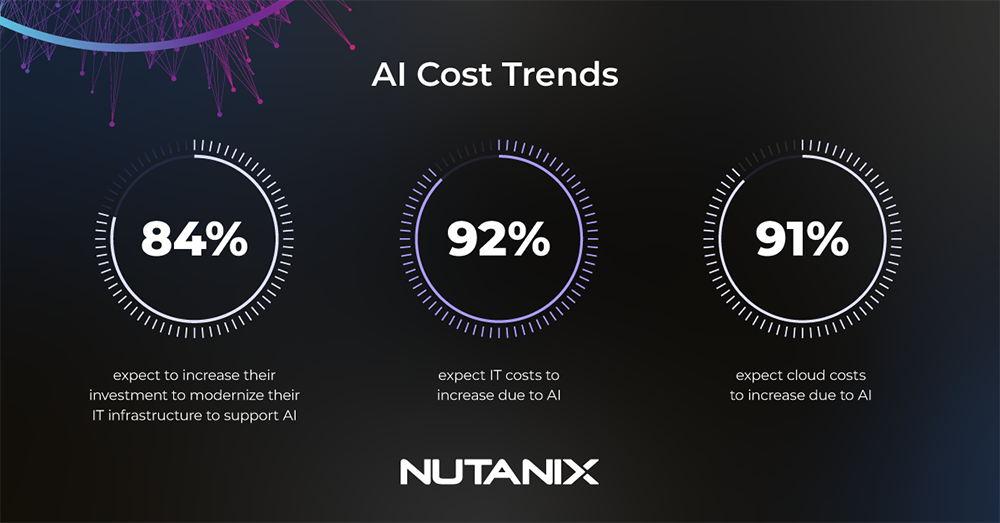Nutanix, a leader in hybrid multi-cloud computing, has released the Nutanix State of Enterprise AI Report, a global research study providing insights into enterprise decision-making around AI.

The report provides a holistic view into how enterprises are approaching AI technology strategy and adoption, as well as how future plans will affect IT spending and budgeting.
“In just one year, generative Artificial Intelligence (genAI) has completely upended the worldview of how technology will influence our lives and enterprises are racing to understand how it can benefit their businesses,” said Sammy Zoghlami, SVP EMEA at Nutanix.

“While most organisations are in the early stages of evaluating the opportunity, the State of Enterprise AI Report confirms that most consider it a priority. More importantly, the survey uncovered an important theme among enterprises adopting AI solutions: a growing requirement for data governance and data mobility across data centre, cloud and edge infrastructure environments making it even more important for organisations to adopt a platform to run all apps and data across clouds.”

Key findings for EMEA include:
- EMEA organisations plan to embrace AI solutions but are slowed by a generative AI skills-gap. 90% of EMEA respondents said that AI is a priority to their organisation. Today, the top two AI solutions deployed by EMEA organisations include virtual assistants/customer support bots, as well as a mix of generative AI solutions. However, when it comes to AI solution implementation, EMEA respondents indicate they lack generative AI and prompt engineering skills, and they also require more data scientists and data science skills to support their initiatives.
- AI data security, scale and management will be top challenges for EMEA organisations. More than 90% of EMEA respondents say that security, reliability, and Disaster Recovery are important considerations in their AI strategy. EMEA organisations also ranked ‘managing and supporting’ AI workloads at scale as their organisation’s number one challenge over the next one to two years – higher than any other region. When it came to AI data governance, over half of EMEA organisations indicated that AI data governance requirements will force them to better understand and track data sources, age and other data qualities. Addressing data security, workload scale and data visibility/management will be critical tenets of success for EMEA AI initiatives.
- Infrastructure modernisation and data security are at the forefront of EMEA AI decision-making – not cost. Cost ranked as the third-lowest consideration for EMEA organisations running or planning to run AI workloads. Furthermore, when we asked about the key drivers behind upgrades for AI applications or infrastructure, EMEA respondents once again ranked ‘cost’ as the lowest priority. By contrast, over 90% of EMEA respondents agree that their IT costs and cloud spending will both increase due to AI applications. EMEA organisations are showing a willingness to spend in support of their AI initiatives, a sentiment which AI solutions/services providers will benefit from.
The report is based on a global research study conducted by Vanson Bourne, on behalf of Nutanix, surveying 650 IT, DevOps and Platform Engineering decision makers between July and September 2023. The respondent base spanned multiple industries, business sizes and the following geographies: the Americas; Europe, Middle East, and Africa (EMEA); and the Asia-Pacific-Japan (APJ) region.
Click below to share this article


